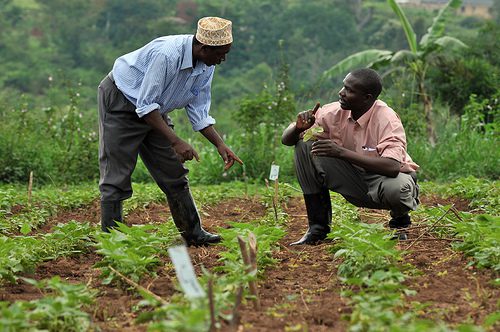The 2025 Wet Season Crop Production Report released by AFEX has revealed a significant drop in the use of farm inputs due to the escalating cost of farm essentials.
The report revealed that input utilisation declined significantly, with only 62 per cent of farmers reporting the use of inputs in 2025, down from 81 per cent in 2024.
Released during a virtual meeting, the report indicated that growth in Nigeria’s agricultural sector remained constrainedNigeria’s agricultural sector remained constrained by persistent challenges such as rising input costs, limited adoption of improved technologies, and a reduction in cultivated land areas.
It also revealed that limited access to finance remained a critical barrier to production, as 48 per cent of farmers surveyed indicated a lack of access to finance as their primary challenge during the cultivation season.
It added that the persistent unavailability of affordable credit, coupled with high lending rates, left many smallholders unable to procure essential inputs such as seeds, fertilisers, and agrochemicals.
The survey findings showed that many farmers responded by scaling back production, given that they are constrained both by financial losses from the season and restricted access to credit for new cultivation.As a result, total cultivated area declined by eight per cent, while input application dropped markedly, averaging a 24 per cent reduction across farms.
It stated that the constraints were further aggravated by erratic rainfall during the 2025 planting season, as 19 per cent of farmers reported delayed or insufficient rainfall that disrupted planting schedules, and five per cent experienced excessive rainfall that impeded cultivation. This variability shows the increasing unpredictability of weather patterns, which continues to complicate farming and reduce productivity.
The findings, however, projected a decline in major commodities such as maize, paddy rice, cocoa, and ginger due to reduced input application and weaker farmer investment level, while soybean, sorghum, and sesame are expected to experience moderate growth, buoyed by area expansion and a gradual shift in farmer preference toward crops requiring fewer inputs and offering stronger market prospects.
It further warned that the escalating input costs and declining adoption rates pose significant risks to productivity growth, farmer profitability, and Nigeria’s capacity to meet both domestic food needs and export potential, saying that if unaddressed, the trends could exacerbate food insecurity, widen the yield gap with global peers, and diminish the competitiveness of Nigerian commodities.
Meanwhile, the findings have highlighted clear areas for action, including stabilising input supply chains, ensuring policy consistency, expanding access to finance, promoting the integrated use of fertilisers, improved seeds, and crop protection products.
It stressed that tackling these systemic challenges is essential to unlocking productivity gains and strengthening farmer resilience in the years ahead.






